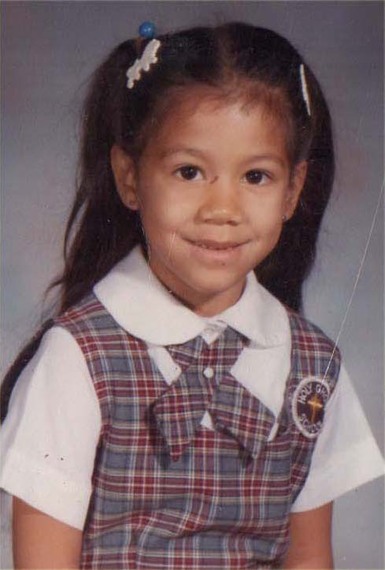
I grew up in an all white, Italian neighborhood in the late 70's early 80's and was the only first generation; brown skinned Puerto Rican / Dominican that attended the small Catholic private school in our neighborhood. I remember loving kindergarten! Sitting on the floor mats and playing with glue, crayons and logs with other students.
But something began to change around second grade.
I noticed kids slowly stopped inviting me to be part of their teams when we played in the schoolyard or getting an invitation to their homes for birthday parties. It wasn't long until they began calling me names like spic, the 'N' word, and "Mexican jumping bean" (which is neither Dominican nor Puerto Rican) during recess and in the hallways when teachers weren't looking. The name-calling turned into shoving, hair pulling, spitting and being called into the principal's office for incidents.
I started to understand what was happening and from those early days forward I began suppressing my identity, my culture, and many times feeling ashamed of my Afro-Caribbean father.
It wasn't until I was an adult that I found out my mother had a difficult time enrolling me in this school. She recalls speaking, in her broken English, and asking why they wouldn't accept me. But deep down inside she knew the reason. My mother has always been a fighter for the American Dream and never takes no for an answer. She took it upon herself to ask a Latina nun that was a family friend to advocate for us. Luckily, my mother understood the importance of a good education and I was enrolled. She was always determined to enroll me in (predominantly white) private schools, which meant sacrificing my identity.
My early educational experience impacted me profoundly and shaped the decisions I made in my career. I often wondered what it would have been like if I had teachers that looked like me, talked like me and understood me.
Would I have been more confident? Asked more questions and gotten better grades?
I questioned why there weren't any Hispanic teachers and began to challenge the system. This is when I decided to become a teacher. I wanted to be a teacher in urban schools where my presence reflected the culture of the majority of students in the classroom and send the message of success despite color or socioeconomic status.
Today, I sit in my Principal's chair with my Afro-Caribbean curly, brown hair and my Dominican and Puerto Rican flags hanging from my shelf, while meeting with students that are dealing with similar challenges. Yes, the challenges are still there. I continue to fight for equitable systems that will allow all students to succeed.
While I'm no longer the student that sat alone in classrooms with students and teachers that did not look like me, I still find myself sitting in meetings being the only Hispanic administrator where decisions about our students, all of them, are made. Today, the challenges and sacrifices I experience are different but will hopefully lead to my ceiling being the floor for my own daughter and our students.